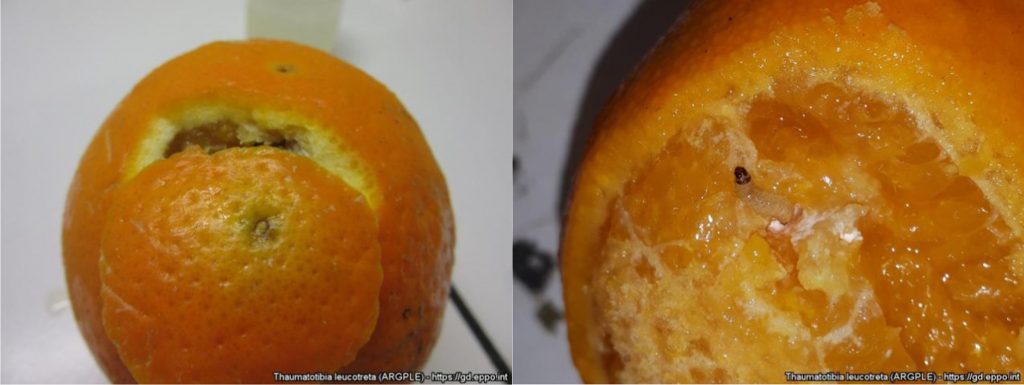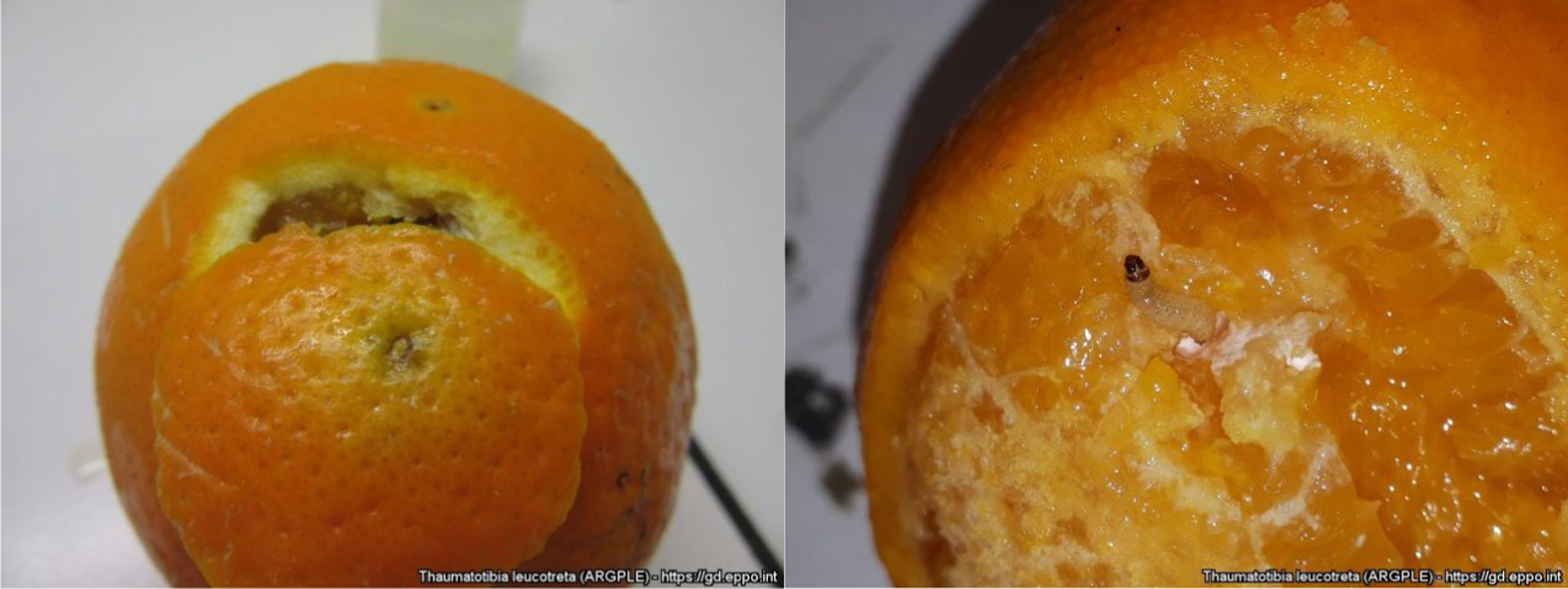EFSA report questions South Africa’s pest control system for citrus
- Produce
- Citrus
- South Africa
- CGC
- European Food Safety Authority
- False moth
- Pest control
- Protection solutions
A report by the Independent Scientific Authority EFSA confirms that the EU’s measures to defend against the ‘false moth’ are ineffective. The Thaumatotibia Leuckotreta or ‘False Moth’ (FCM) is a common pest in Africa, even in countries with Mediterranean climates such as Israel and South Africa. It is considered essential to regulate against this pest due to its potential to cause serious negative economic and environmental impacts.
After the repeated interceptions in European ports of infested items, the European Commission last summer ordered the EFSA (the European Food Safety Authority) to conduct an evaluation study on the systems approaches followed by Israel and South Africa to mitigate the risk of entry of this disease in the EU. The report on South Africa has now been published, and the results of the analysis are alarming, according to the Valencia-based citrus organisation CGC. South Africa only guarantees with 95% of certainty that 92%, 85% and 97% of the exported pallets (according to the specific programme (A, B or C) respectively) will be free of the pest, a level that the CGC deems “unacceptable”.
President of the CGC, Immaculate Sanfeliu, said:
“Those percentages indicate the entry of tens of thousands of citrus fruit infested with viable individuals, capable of dispersing and, therefore, a very high possibility of the introduction and establishment of this pest in the EU. This is playing with fire given that the norm is to achieve a total absence of pest in the fruit.”
The CGC advocates that the only effective method is cold treatment, and calls on the EU to regulate accordingly.




